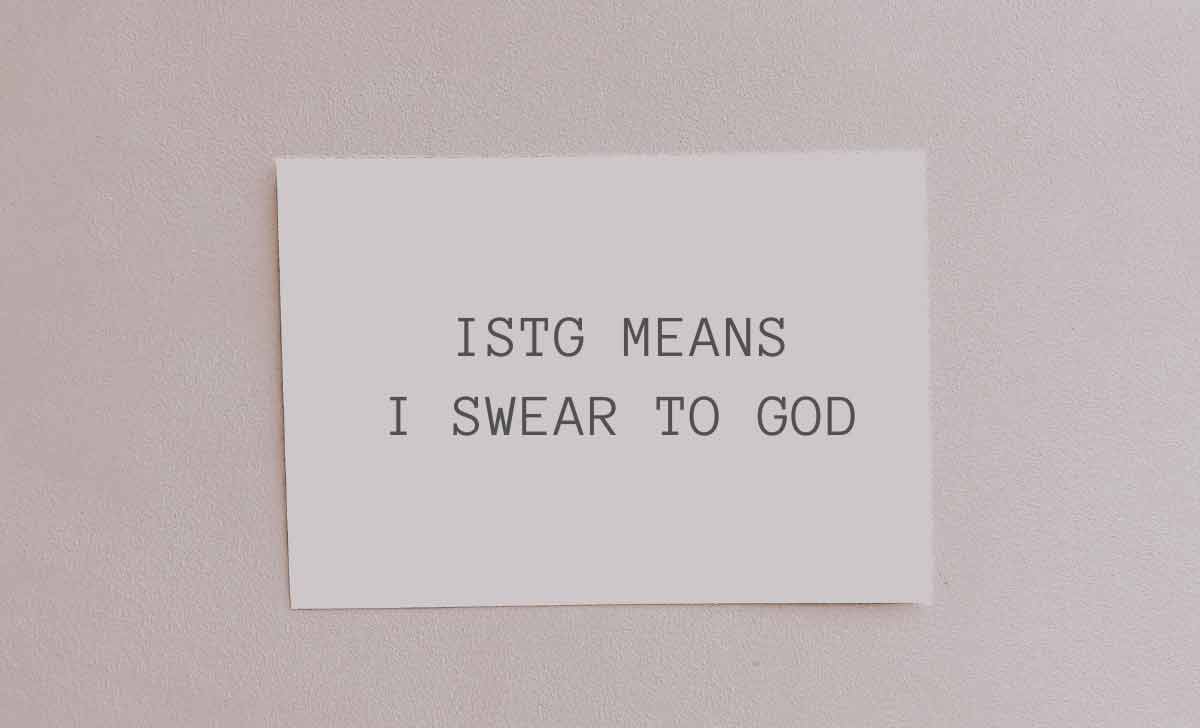What does ISTG mean?
ISTG meaning is a shortcut of a sentence I SWEAR TO GOD, It is commonly used in everyday conversations. It is usually verbalized in its full form. It is used to express Annoyance or Inconvenience of the situation.
How to use ISTG
ISTG is commonly used to express the emotional heartfelt of the situation. It let the others understand how genuine you are. It is used to satisfy people that we are apprising the truth.
There are multiple ways demonstrating ISTG:
- To demonstrate conviction: when you are in a doubtfulness that people disbelieve you, to persuade people that you are telling the truth, you use ISTG.
- To heighten up the ultimatum: when youve warned someone and you feel that they are valiant and have no fear towards you then you start using ISTG to make them more frighten up.
- To promise to change practices or etiquette:If you want to stop someone from doing something you dont like or to change someones behaviour you use the word ISTG.
- As a general Interjection: You use these types of turn of phrases when something goes opposed to your beliefs or assumptions.

Examples of How ISTG is used
Example 1: To demonstrate conviction,
- Friend: no way, dont tell me that the test is tomorrow!
- You: Yes, it is! ISTG, the teachers even reminded us today.
Example 2: To heighten up the ultimatum,
- VIP: If you dont stop irritating me, ISTG your death is in
- My hands!
Example 3: To promise to change practices or etiquette,
- Friend: After failing a test, ISTG I will study this time!
- You: ROFL (Rolling on the floor laughing), you ve said the same thing last time too.
Example 4: As a general Interjection,
- VIP: You are so irritating ISTG.
- When you shouldnt use ISTG
You shouldnt use ISTG in a professional conversation and shouldnt use ISTG in conversations where you want to emain respectful towards the other people/person.
You should not use ISTG when speaking to someone who are more religious or devotional because they might get aggrieved by a turn of phrase like this.
